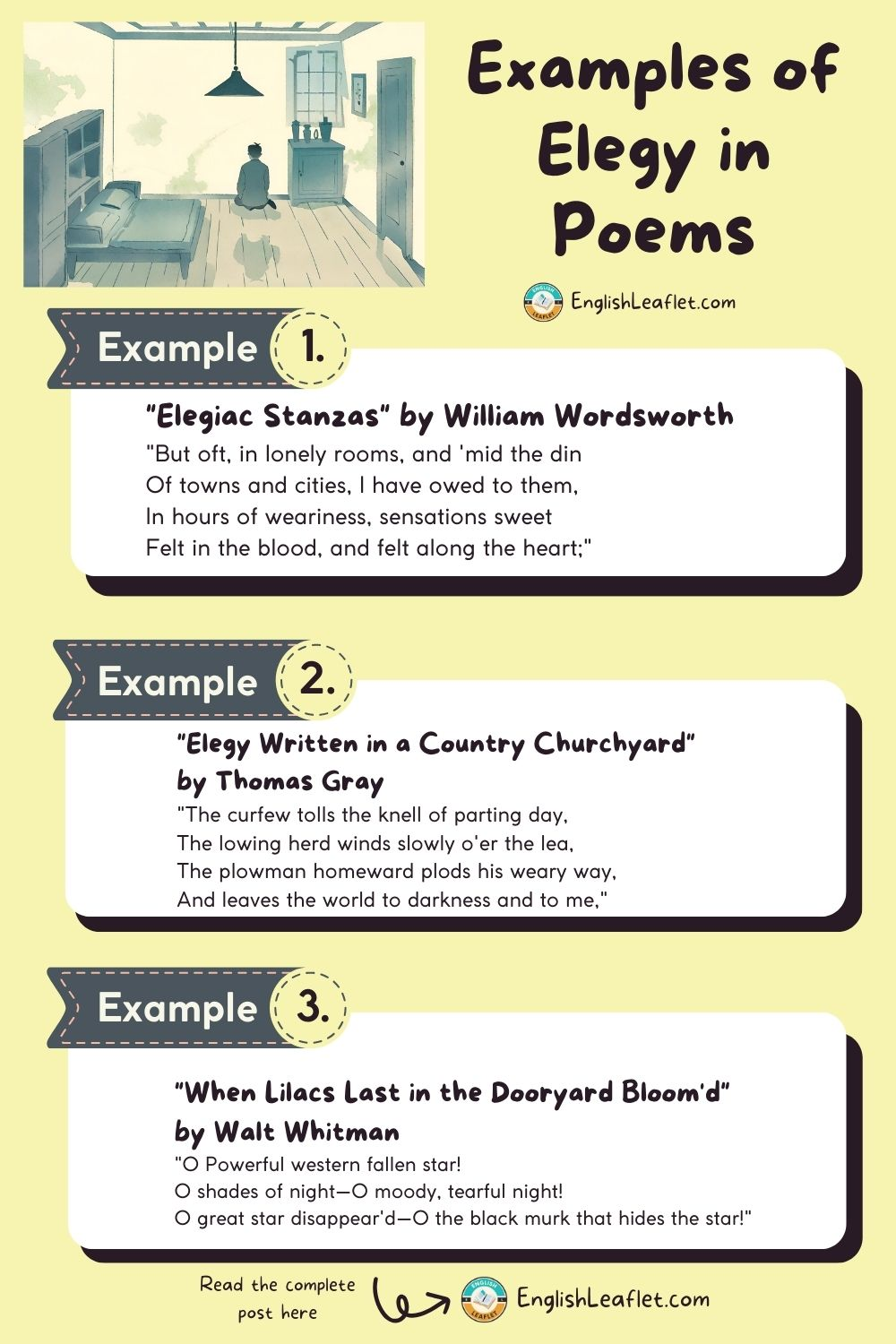The Elegy Poetry Workshop offers a unique space for individuals to explore the heartfelt tradition of elegy writing, bridging personal loss with community engagement in poetry. Set within the renowned Woodberry Poetry Room at Harvard, this workshop invites participants to dive into the intricacies of emotional writing, all while connecting with others who share similar experiences of grief and reflection. Led by esteemed poets Karen Elizabeth Bishop and David Sherman, attendees not only craft their elegies but also contribute to a broader poetry project aimed at alleviating feelings of loneliness. This workshop represents a vital effort to harness the healing power of verse, allowing voices from all walks of life to resonate in unison. By participating in such emotionally charged writing workshops, community members can discover their poetic voices, transforming sorrow into art that honors the human experience.
Engaging with the craft of elegy writing extends beyond mere composition; it is an invitation to express the depths of human emotion during times of loss. In literary circles, alternative terms such as “lamentation poetry” or “commemorative verse” encapsulate the essence of this genre, which often serves to console and reflect on life’s inevitable transitions. Through workshops that delve into these poignant themes, participants not only sharpen their writing skills but also foster connections within the community. These gatherings celebrate the art of poetic expression, encouraging individuals from diverse backgrounds to confront their grief and find solace in shared experiences. Thus, the act of crafting elegies becomes not just a personal endeavor but a collective journey toward understanding and healing.
The Essence of Elegy in Poetry Workshops
Elegy poetry workshops, like the recent initiative at Harvard’s Woodberry Poetry Room, explore the profound intersections of grief and expression. Elegy serves as a powerful medium through which poets and enthusiasts alike can process personal loss while connecting on a shared emotional level. This workshop, led by Karen Elizabeth Bishop and David Sherman, was not just about crafting personal elegies but also about fostering a communal environment where participants could explore their vulnerabilities. The act of writing elegies, in this sense, transcends mere poetry technique; it becomes a vital process of communal healing, poignantly reminding individuals that grief is a universal experience.
In these workshops, the emphasis on emotional writing allows participants to delve deeply into their own narratives. They have the opportunity to confront feelings of estrangement that often accompany grief, all while being guided by seasoned poets. For many, the workshop is a rare opportunity to engage with others who are navigating similar emotional landscapes, reducing the solitude often felt in mourning. This engagement fosters not only a creative outlet but also a supportive network, challenging the notion that poetry is an isolated act and instead positioning it as a collective, healing practice.
Community Engagement Through Poetry: A Vital Connection
Community engagement in poetry is at the heart of the Elegy Project, which utilizes accessible platforms to bring poetry into public spaces. The initiative underscores the belief that poetry should not be confined to academic or literary circles—it belongs to everyone. By distributing poem cards in various public locations, the Elegy Project invites strangers to share in the evocative power of elegy, encouraging a shared sense of mourning that can unite people across diverse backgrounds. This public-facing approach not only democratizes poetry but also alleviates feelings of isolation in individuals grappling with loss.
Moreover, the Elegy Project’s integration of community engagement fosters conversations about personal and collective grief, making it a significant social project. As participants interact with poetry cards, they experience a form of communal remembrance that honors the dead while simultaneously validating their own feelings. Workshops act as a springboard for deeper community discussions and forged connections over shared experiences of loss, thereby enriching the local literary landscape. By turning grief into a shared dialogue rather than a solitary burden, these workshops expand the impact of poetry within the community.
Writing Elegies: An Intimate Journey
Writing elegies provides a unique channel for individuals to articulate their deepest sorrows and reflections on loss. The structure of elegy encourages poets to explore personal narratives, transforming grief into art. This intimate journey often begins with a simple prompt, yet it can lead to profound revelations about the human experience. Through workshops like those offered by the Elegy Project, participants are gently guided to confront their emotions, explore their memories, and ultimately find solace in the act of writing. Each line crafted during these sessions becomes a testament to the enduring bond between the living and the departed, emphasizing memory and reflection.
In the context of emotional writing workshops, the supportive atmosphere nurtures creativity while ensuring that participants feel safe to express their vulnerabilities. This exploration can lead to unexpected poetic insights, as the act of writing elegies allows individuals to confront and process their emotions directly. For many, sharing their elegies with the group can be a transformative experience, as it fosters vulnerability and connection. With every elegy penned, participants learn not only to voice their grief but also to celebrate the memories of those they have lost, turning sorrow into a beautiful, creative expression.
The Role of Harvard Poetry Workshops in Community Building
Harvard poetry workshops play a pivotal role in strengthening community bonds through the transformative power of poetry. These gatherings create an inclusive space where individuals from various backgrounds, including retired painters and doctoral candidates, can come together to explore their shared humanity through verse. The dedicated efforts of workshop leaders like Bishop and Sherman ensure that every voice is heard, fostering a sense of belonging within the arts community. As participants engage with poetry in the altruistic environment of the Woodberry Poetry Room, they embark on a journey of creative discovery that enriches both their personal lives and the community at large.
Furthermore, by prioritizing community engagement in poetry, the workshops serve to cultivate a culture of collaboration rather than competition. Participants are encouraged to draw inspiration from one another, share their experiences, and develop their poetic voice in a nurturing environment. This collaborative spirit not only enhances the individual experience but also contributes to a richer artistic community, where poetry becomes a means of connection rather than division. In this way, the Harvard poetry workshops are integral in weaving together a network of poets dedicated to exploring their craft while uplifting one another through the art of writing.
The Significance of Public Poetry Initiatives
Public poetry initiatives, like the Elegy Project, underscore the importance of accessibility in literature and the arts. These programs are designed to draw poetry out from the confines of academia and into the everyday lives of people. By placing poetry cards in bus stops or public parks, the project invites spontaneous interactions with literature, allowing individuals to stumble upon poetry in moments of quiet contemplation. Such initiatives not only democratize access to poetry but also encourage a broader public engagement with the arts, making it a common thread that stitches communities together.
Moreover, these public engagements often spark curiosity and inspire individuals to write their own poetry. When people encounter elegies and poetic expressions in everyday settings, it can ignite a desire to reflect on their own experiences of loss and love. This ripple effect of creativity can lead to workshops, readings, and community events where people come together to share and discuss their poems. As poets become more visible within their communities, the collective understanding of poetry’s role in human experience deepens, reinforcing the connection between language, emotion, and societal healing.
Transformative Experiences in Elegy Poetry Workshops
Participating in elegy poetry workshops can be a transformative experience for individuals looking to process grief and find meaning in their losses. The structure of the workshop not only provides guidance but also creates a safe space where participants can freely express their emotions. This nurturing environment encourages participants to craft elegies that resonate with their personal experiences, allowing them to confront their vulnerabilities and articulate their feelings in a constructive manner. The cathartic nature of elegy writing can have a profound impact on emotional well-being, as it transforms pain into art—a powerful method of healing.
Additionally, the closure offered through the elegy writing process is not limited to the individual; it extends to the group as well. Sharing one’s elegy within the workshop promotes a sense of solidarity among participants, fostering a community dynamic focused on healing. This shared journey accommodates various perspectives on grief and allows individuals to bond over their collective experiences. The Elegy Project exemplifies how such workshops catalyze transformative emotional journeys, creating a ripple effect of healing that spreads throughout communities as participants leave with new tools for processing their grief and celebrating their memories.
Exploring the Intersection of Grief and Poetry
The intersection of grief and poetry is beautifully explored through workshops like those facilitated by the Elegy Project. Here, participants are guided to traverse the complexities of loss and remembrance, creating elegies that resonate deeply on both personal and universal levels. The workshop settings provide a unique atmosphere where individuals can witness the endeavors of others to articulate their sorrow, thereby recognizing their struggles as part of a shared human experience. This exploration not only helps in processing individual grief but also sheds light on how poetry serves as a bridge between personal pain and collective understanding.
Furthermore, through the lens of emotional writing, these workshops illustrate how poetry serves a therapeutic purpose, allowing participants to express feelings often left unspoken. Each elegy crafted becomes a vessel for memory and emotion, providing clarity in the chaos of grief. By fostering an environment that celebrates vulnerability and creativity, elegy poetry workshops empower participants to process their emotions through poetic expression, mastering the art of articulating their deepest losses in a way that resonates with others. Thus, the act of writing elegies becomes an intricate dance between the personal and the universal, a shared journey toward healing.
The Impact of Elegy Projects on Creative Communities
Elegy projects, such as the one associated with the Woodberry Poetry Room, have a significant impact on creative communities by promoting an inclusive culture of poetry and emotional expression. These initiatives engage local artists and poets, allowing them to showcase their work while inviting the community to participate in acts of creativity. The intermingling of diverse voices within these projects enriches the cultural fabric of the community and helps to establish a supportive network for aspiring poets. By celebrating elegy as a form that encompasses grief, remembrance, and connection, these projects cultivate a shared understanding of the role of poetry in profound human experiences.
Moreover, the success of such projects lies in their ability to spark ongoing conversations about loss and healing within the community. By encouraging poets to write about their own experiences, elegy initiatives foster a sense of solidarity, creating a space where individuals can openly share their thoughts and feelings. This communal aspect not only enhances individual growth but also strengthens the overall creative community by inspiring new collaborations and fostering literary exchanges. Ultimately, elegy projects pave the way for a renewed appreciation for poetry, demonstrating how it can be a powerful tool for understanding and processing the complexities of life.
Frequently Asked Questions
What can participants expect from the elegy poetry workshop?
Participants in the elegy poetry workshop can expect a supportive environment for writing elegies, inspired by the tradition of mourning and loss. Led by experienced facilitators, the workshop encourages community engagement in poetry, providing prompts and access to the Woodberry Poetry Room’s extensive collection to stimulate creativity.
How does the elegy poetry workshop contribute to community engagement in poetry?
The elegy poetry workshop enhances community engagement in poetry by inviting individuals from diverse backgrounds to explore their personal experiences of grief and loss. This initiative, part of the Elegy Project, emphasizes that poetry is a collective experience, fostering connections among participants as they share their elegies and reflect on their emotions.
Who can benefit from attending a writing elegies workshop?
Anyone interested in exploring their emotions related to loss can benefit from a writing elegies workshop. Whether seasoned poets or novices, participants are encouraged to express their feelings through poetry, making it a valuable experience for individuals dealing with personal grief or seeking to engage in emotional writing workshops.
What is the Elegy Project associated with the Harvard poetry workshops?
The Elegy Project is a public poetry initiative that forms part of Harvard’s poetry workshops, aimed at making grief less lonely through shared artistic expression. It includes workshops where participants can write their own elegies and engage with the larger themes of loss and remembrance in a community setting.
How do elegy poetry workshops support emotional writing?
Elegy poetry workshops support emotional writing by providing a space for participants to process their grief while crafting poetry. Attendees are guided by experienced poets through prompts and discussions that encourage them to dive deep into their emotions, making the writing process both personal and cathartic.
Can I join the elegy poetry workshop if I haven’t written poetry before?
Yes, the elegy poetry workshop welcomes individuals with all levels of experience, including those who have never written poetry before. The workshop environment is designed to nurture creativity and encourage participation, allowing everyone to express their feelings through poetry regardless of their background.
What unique elements does the Harvard elegy poetry workshop offer?
The Harvard elegy poetry workshop provides unique elements such as access to the Woodberry Poetry Room’s rich collection, expert guidance from seasoned poets, and a community-centric approach that invites diverse voices to share their elegies, thereby enriching the overall experience of poetry writing.
How often do elegy poetry workshops take place at Harvard?
Elegy poetry workshops at Harvard typically occur periodically, with the Elegy Project hosting multiple sessions throughout the year, allowing continual engagement and exploration of elegiac themes. Keeping an eye on announcements from the Woodberry Poetry Room will provide updates on upcoming workshops.
Why is writing elegies an important poetic form in the context of community?
Writing elegies is an important poetic form in the context of community as it allows individuals to collectively process grief and celebrate the lives of those they have lost. By engaging in this form of poetry, participants foster connections with one another, creating a shared understanding of the human experience of loss.
| Key Points |
|---|
| The Elegy Project focuses on using poetry to cope with loss and grief, particularly amplified by the pandemic. |
| The workshop was facilitated by writer Karen Elizabeth Bishop and David Sherman, who aim to foster community through shared poetic expression. |
| Participants ranged widely in profession and background, highlighting the inclusivity of the poetry community. |
| The project encourages public interaction with poetry, distributing poem cards as a means to connect with others. |
| Workshops like this emphasize the personal nature of poetry and its universal themes of mourning and healing. |
| Through prompts and curated texts, participants are encouraged to explore their feelings and express them through writing. |
Summary
The elegy poetry workshop serves as a vital space for individuals to confront and process their emotions surrounding loss. By participating in the Elegy Project led by Karen Elizabeth Bishop and David Sherman, attendees can find solace in community and creativity, transforming personal grief into collective expression. This workshop not only enhances poetic skills but deepens connections through shared experiences, reaffirming the significance of poetry in our lives.



